Publications
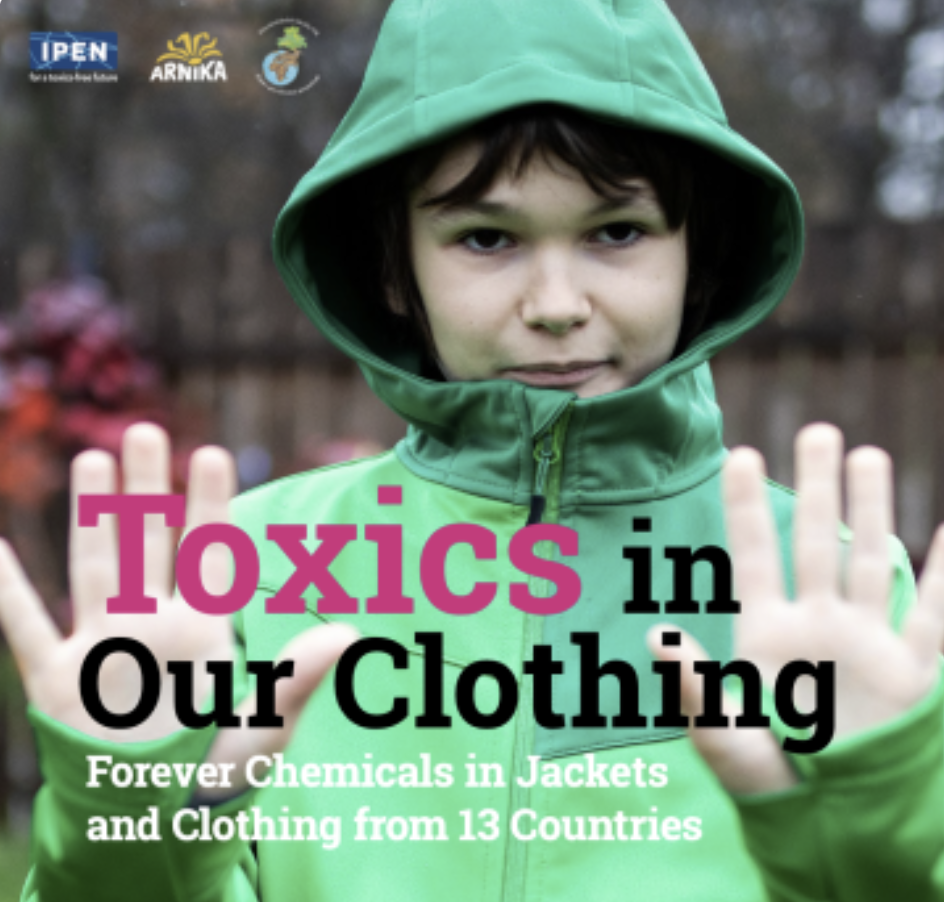
Toxics in Our Clothing: Forever Chemicals in Jackets and Clothing from 13 Countries
Straková, J., Brosché, S., Brabcová, K. | November 2023
Jackets and other clothing sold as water- or stain-resistant were purchased from 13 countries in Asia, Africa, Europe and North America. Most of the jackets tested were marketed for children. Countries included were Germany, Czech Republic, Netherlands, Poland, United Kingdom, Serbia, Montenegro, Kenya, Bangladesh, India, Sri Lanka, Thailand, and the U.S.
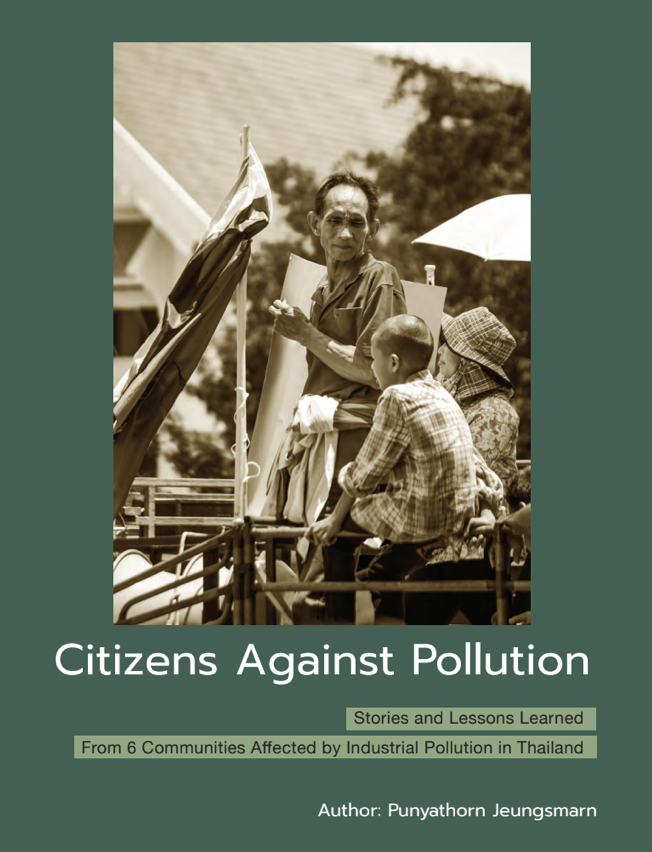
Citizens Against Pollution: Stories and Lessons Learned from 6 Communities Affected by Industrial Pollution in Thailand
Author: Punyathorn Jeungsmarn, Published by EARTH | July 2023
This book presents six battlefields of pollution in Thailand. They include Nam Phong district, Khon Kaen province; Nampu subdistrict, Muang district, Ratchaburi province; Nong Phawa village, Bang But subdistrict, Ban Khai district, Rayong province; Phanom Sa
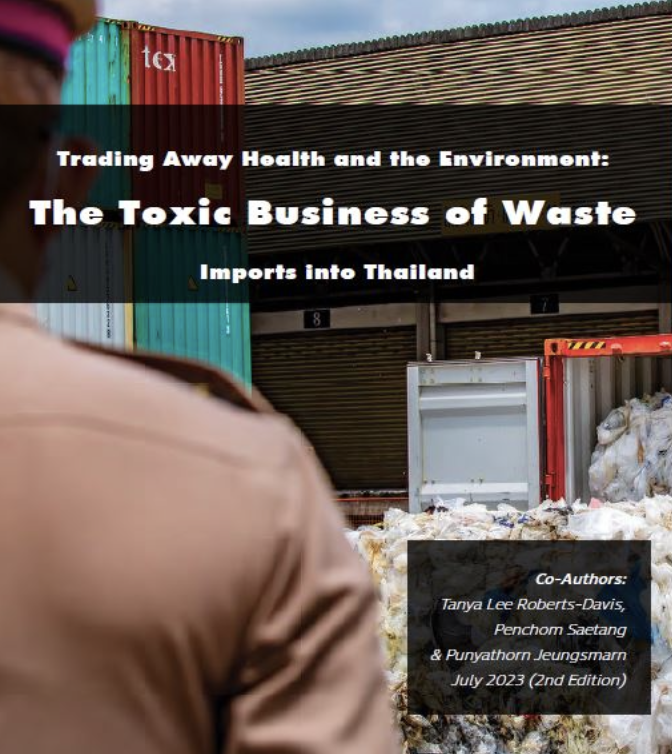
Trading Away Health and the Environment: The Toxic Business of Waste Imports into Thailand
July 2023 (2nd Edition: Updated from June 2019 version)
Trading Away Health and the Environment provides an overview of the devastating impacts on the health and well-being of communities in Thailand where industrial waste processing facilities are being developed as part of an ongoing expansion of the transnational business of plastic and used elect
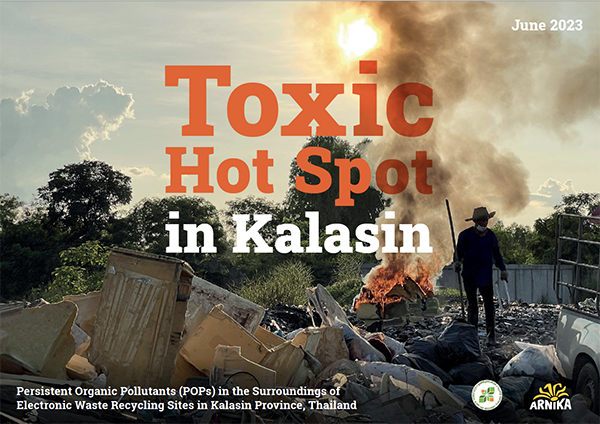
Toxic Hotspot in Kalasin
Persistent Organic Pollutants (POPs) in the Surroundings of Electronic Waste Recycling Sites in Kalasin Province, Thailand, June 2023
Electronic waste and its imports from abroad represent a big burden for the environment and human health in Thailand. This study is mainly focused on research of community based informal e-waste separation anddismantling operations in the Khok Sa-ad subdistrict, Khong Chai district, Kalasin province in northeastern Thailand, where also a large dumpsite with substantial quantity of waste from electronic equipment and machineries is found.
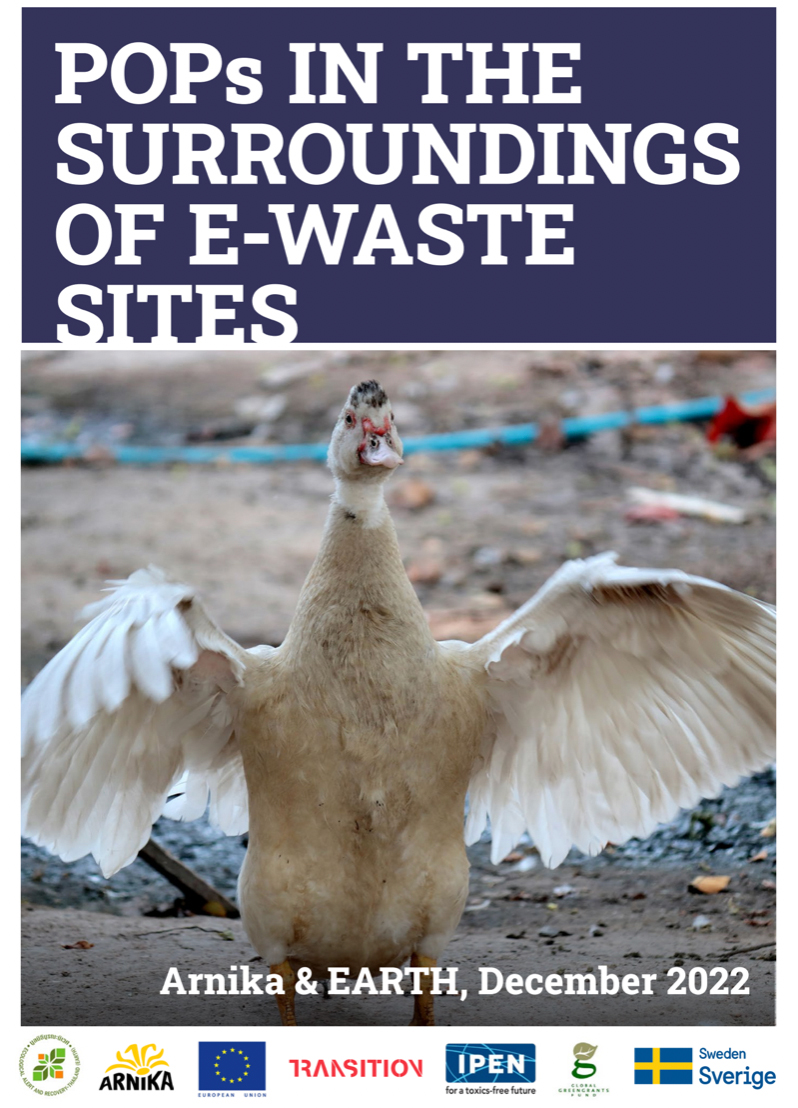
POPs IN THE SURROUNDINGS OF E-WASTE SITES
By Arnika – Toxics and Waste Programme, International Pollutants Elimination Network (IPEN), and Ecological Alert and Recovery Thailand (EARTH) | December 2022
Electronic waste (e-waste) and its imports from abroad represent a big burden for the environment and human health in Thailand. This study is focused on mapping pollution by POPs (Persistent Organic Pollutants) in the vicinity of two facilities processing e-waste in Chachoengsao province, and one site affected by the disposal of sludge of unknown origin (Hat Nang Kaeo) in Prachinburi province. We focused on POPs which are used as additives in electronic equipment and plastic used for its casing, such as, for example, brominated flame retardants (BFRs), short-chain chlorinated paraffins (SCCPs), and others. We also focused on POPs produced unintentionally during the production of BFRs, and particularly during incineration and other thermal processes used for the disposal and recycling of plastics from e-waste.
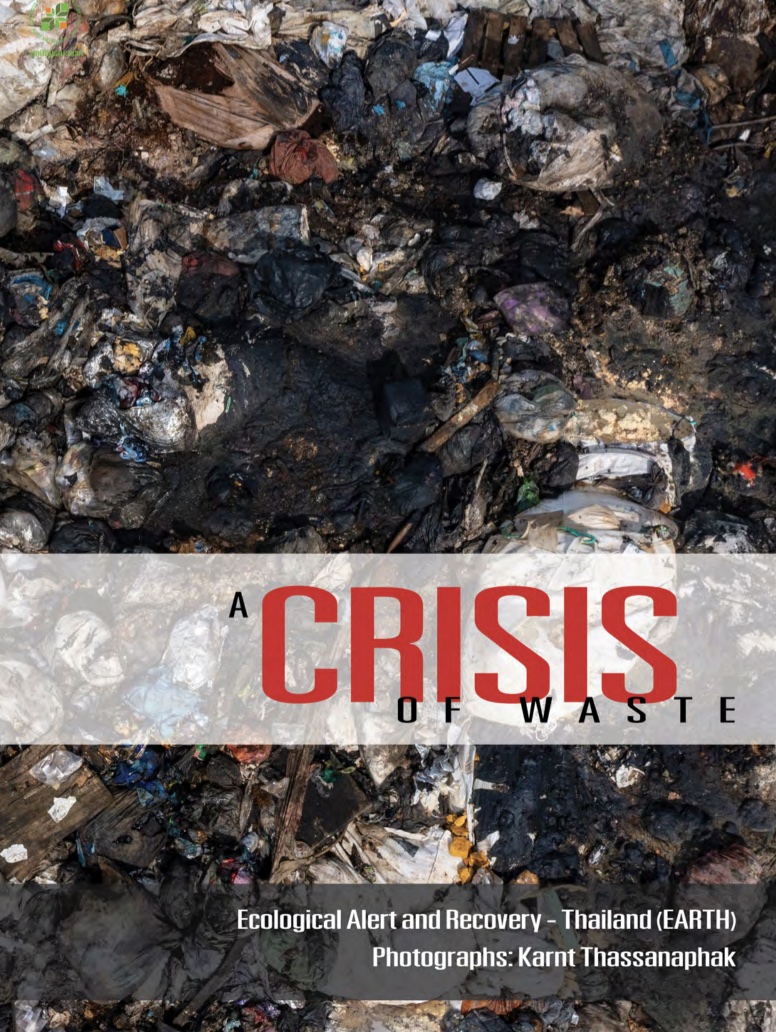
A Crisis of Waste: A Photo Book on the Situation and Crisis of Waste in Thailand
By EARTH, Photo by Karnt Thassanaphak, December 2021
The world is facing a crisis of waste, and Thailand is no exception. Today, this country faces a growing quantity of wastes from various sources, including households/communities and industrial factories. In addition, plastic scraps, electronic scraps and wastes of other sorts are flowing from across the border into recycling factories. These waste importations occur through various avenues from illegal smugglings to exploitation of loopholes in the law.
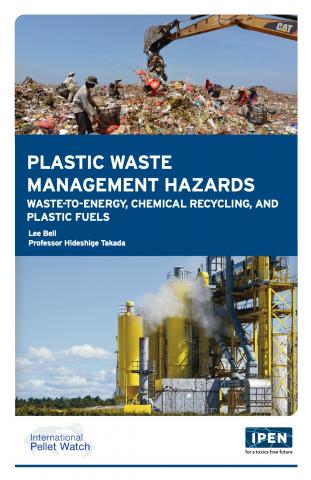
Plastic Waste Management Hazards
2021 | Prof. Hideshige Takada, Dept. of Environmental & Natural Resource Sciences, and
Lee Bell, IPEN Mercury and POPs Policy Advisor
Plastic waste has become an unprecedented pollution issue around the globe. From visible plastic litter on land and in oceans to invisible micro-plastics in lakes, mountains, and rain, the planet is increasingly blanketed in the petrochemical remnants of plastic production. With petrochemical companies avoiding fossil fuel carbon liabilities by massively increasing plastic production, the amount of plastic waste generated is set to climb dramatically.

Waste Trade in Southeast Asia: Legal Justifications for Regional Action
EcoWaste Coalition - JULY 2021
The COVID-19 pandemic has already had negative effects on waste management, significantly contributing to increases in medical waste and household waste, and a substantial slowdown in recycling efforts. This upsurge in hazardous waste particularly endangers developing countries that are destinations for waste exports via the global waste trade.
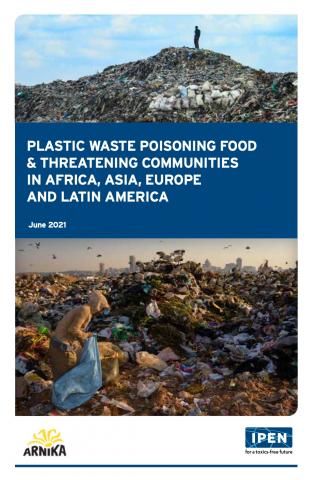
Toxic Chemicals in Plastic Waste Poisoning People in Africa, Asia, Central and Eastern Europe & Latin America.
IPEN & Arnika, June 2021
Plastics and food packaging contain chemical contaminants from manufacturing along with many additives to make them inflammable, more flexible, grease-resistant, or sterile, as well as other substances to create many other properties. Many of these additives are toxic and they leak from products during use and can be released during recycling and from recycled products.
This study focuses on persistent organic pollutants (POPs), whose releases are closely related to plastic wastes. The POPs include additives in the plastic as such, as well as unintentionally produced POPs (UPOPs) generated mostly by burning, incineration and/or other thermal treatment of plastics.
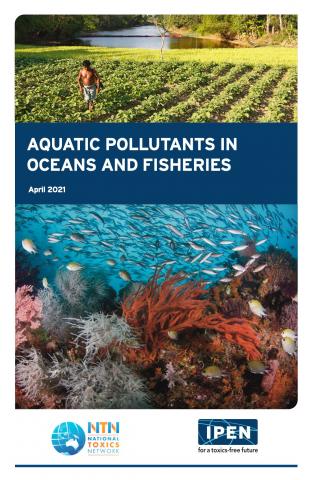
Aquatic Pollutants in Oceans and Fisheries
IPEN & NTN | April 2021
Chemicals are polluting oceans and waterways, not only endangering wildlife and those who rely on seafood for sustenance, but threatening the collapse of many fisheries. In combination with global warming, this is a catastrophe in the making. This report is the first to begin to detail the numerous ways and places in which chemical pollution and climate change is destabilizing this marine infrastructure and the world's fisheries. We still have time to stop the destruction, but as this report indicates, we will need to go beyond thinking only about how to control overfishing or manage pollutants in the fish we consume. Our survival, along with that of all other species, will depend on ensuring the health of the entire ocean, an objective we all must work on together to achieve.


